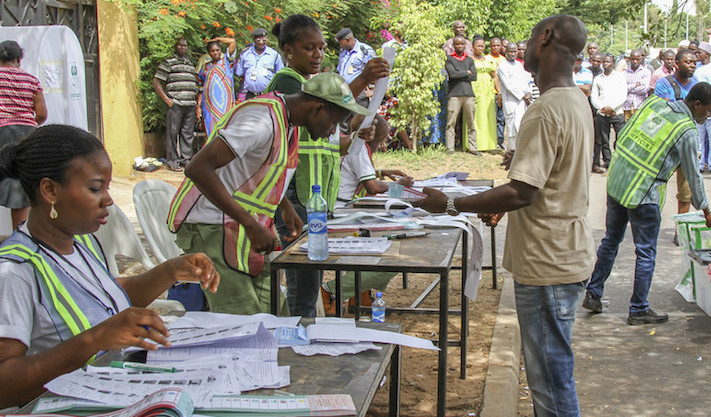- Have any questions?
- [email protected]
Why Young People Will Play a Major Role in the 2023 Elections

Why We Must Shun Fake News This Election Season
8 December 2022
We Should All Support Local Government Autonomy
21 December 2022Voters in Nigeria will go to the polls to choose their president and legislators in about two months. Like past elections, the general election in 2023 will be the most significant democratic event in Africa. There will be more than 90 million voters able to participate in choosing the next president.
For the 2023 election to be representative and democratic, all facets of society must be represented, including the young populace. When young people are excluded from political participation or disenfranchised, a sizable sector of the population has little to no voice or influence in decisions that impact their lives. Young people must participate in formal political processes and have a voice in shaping today’s and tomorrow’s politics to have an impact over the long run. In addition to being a fundamentally democratic and political right, inclusive political involvement is also essential for creating stable and peaceful societies and for creating policies tailored to the particular requirements of younger generations. Young people must be aware of their rights and provide the information and tools necessary to participate in politics in a meaningful way to be fairly represented in political institutions, processes, and decision-making, particularly during elections.
One cannot avoid the generation gap topic while discussing Nigerian political participation. Will Millennials and “Generation Z” have the same beliefs about the role of politicians in national affairs and the same definitions of the national interest as they join Nigerian politics and the expert community?
One of the main issues that many of these young voters are obsessed with when they enter the political sphere is police violence. The #EndSARS protests made it evident that young people demand more than traditional lip service in response. Many young people are uniting as political forces in the wake of the #EndSARS protests to pass their agenda.
When Ife Olayinka, a 24-year-old accountant at a Nigerian bank, saw the leading candidates for 2023, he understood how crucial it was to get involved in the nation’s politics. A burst of annoyance accompanied Olayinka’s initial thinking: How could anyone support a member of the previous regimes?
#EndSARS was not the only significant factor that led to a rise in young people’s political engagement. People are increasingly being pushed into politics by the state of the nation, including its economics, security, and many other factors. Durobola Michael, 24, is a lead organiser for a nonpartisan group that works to increase voter registration and turnout. He claims he is heavily involved in politics because he is fed up with the current situation and is encouraging people to vote. Many people still believe that their votes do not matter. According to Michael, voting is sometimes viewed as having no effect and being of no assistance. “Nothing’s ever going to change; the elected leaders will still do what they want,” he heard people say.
Even though they are disengaging from the political process, young people are nevertheless interested in politics and participate in various ways, including online, in youth organisations, demonstrations, and grassroots movements focused on significant concerns. Democracies and governments looking to reacquaint young people with electoral politics may want to consider inclusive tactics and election procedures that will appeal to young people and other voters and make it simpler for them to engage and participate. The demands articulated by young people themselves can serve as the foundation for strategies and initiatives to include them in voting processes.
Undoubtedly, an increase in first-time voter turnout, sparked by public calls for reform, might tip the balance in several crucial races in February 2023.

